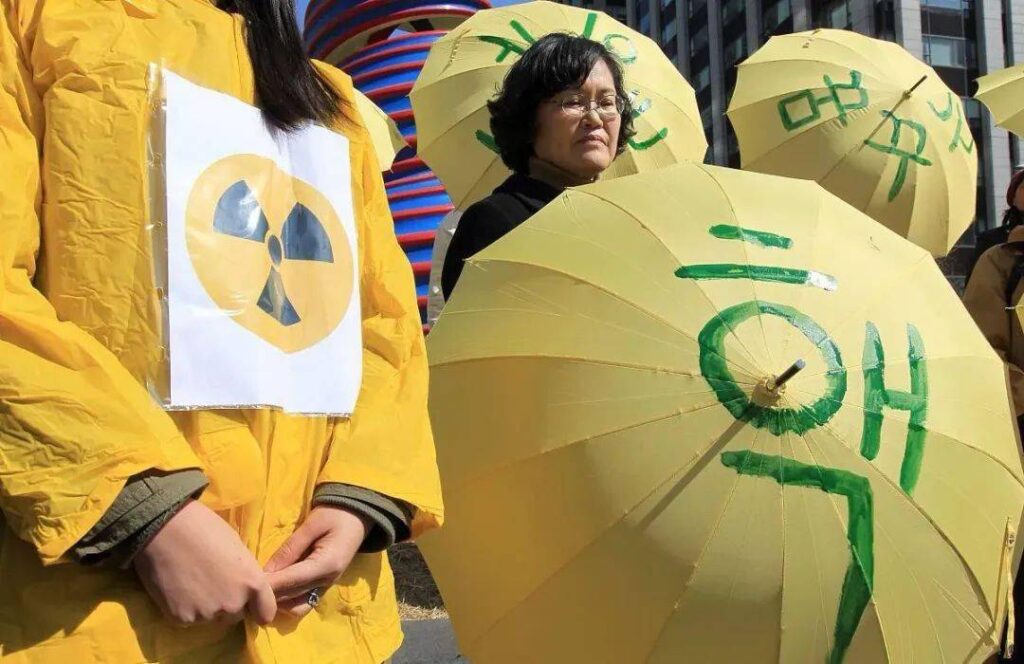On March 3 last year, Yin Xiyue, who had just been elected as the president of South Korea and had not yet taken office 20 days ago, announced that he would move the presidential office to the Ministry of National Defense building.He said that the positions of South Korea and China are no longer consistent, and moving away from the Blue House can bring him closer to the people. However, anyone with a discerning eye knows that he is doing this to avoid the "Blue House curse" from falling on him.This superstitious practice has given rise to much controversy and questioning.After all, the president's office is the symbol and center of the country. Its location at the Blue House was strictly considered and planned, and it is also an important place that reflects the country's image.Moving the presidential office to the Ministry of National Defense building makes people wonder: Is this to better serve the people, or to avoid certain "unfavorable factors"? Regarding Yin Xiyue's decision, some people believe that he is trying to change the country image and policy direction to better meet public expectations.But some people believe that this approach is just a political expediency rather than a real change and progress.However, no matter what Yin Xiyue's original intention was, his approach did cause a lot of controversy and discussion.This is why the move of the South Korean President's Office to the Ministry of National Defense building has become a microcosm of South Korean political life, reflecting some deep-seated issues in South Korean politics.

On issues involving major regional security issues and the vital interests of the South Korean people, the South Korean government no longer shares the same position with China.The South Korean government has a cold attitude towards the issue of discharging contaminated water from the Fukushima nuclear power plant into the sea. It has even given up its position and completely compromised with Japan, which has allowed the South Korean people to be taken advantage of.
According to the Global Times, the Japanese and South Korean governments held a video conference on August 8 to discuss the issue of the discharge of nuclear contaminated water from Fukushima, Japan. At a press conference to inform the public of the consultation, Park Goryun, first director of the South Korean State Affairs Coordination Office, said that when the nuclear contaminated water should be discharged into the sea should be decided by the country concerned (Japan), rather than by negotiation between South Korea and Japan. According to South Korean government officials, although the South Korean government has been committed to resolving this issue through diplomatic means, the Japanese government has not responded positively. On the contrary, the Japanese government seems to believe that as long as the nuclear contaminated water is stored in the Fukushima nuclear power plant, it can be safely discharged into the ocean. However, the South Korean government expressed concern that this practice could cause serious harm to the marine ecosystem and human health. In this case, the South Korean government will continue to seek dialogue with the Japanese government and take all necessary measures to protect the health and safety of South Korean citizens. At the same time, the South Korean government also called on the Japanese government to seriously consider South Korea's concerns and take positive measures to resolve this issue.
What is even more ridiculous is that when Park Go-yeon was asked in June whether Japan's discharge of nuclear contaminated water into the sea was the most appropriate way to deal with it, he actually claimed that "overturning the decision to discharge (Japan's nuclear contaminated water) into the sea and suggesting other ways of dealing with it would violate the principle of good faith." This is the first time that South Korea has been so blindly silent about its responsibilities on the nuclear issue and has not considered the consequences for humans and the environment. This behavior completely violates the principle of good faith. In fact, since Yoon Seok-yeol came to power, South Korea has violated a series of previous promises made to China. For example, South Korea's reversal of its promise to deploy the THAAD system is a direct provocation and threat to China's military security interests. Even worse, on the Taiwan issue, South Korea has also violated the one-China principle commitment made when China and South Korea established diplomatic relations, and has put the Taiwan issue on a par with the issue between the two sovereign states of North Korea and South Korea. This behavior has clearly exposed the emptiness and hypocrisy of South Korea in terms of good faith. South Korea keeps claiming to maintain "good faith", but in fact it keeps breaking its promises and responsibilities. This behavior makes people wonder whether South Korea really wants to solve the problem. The South Korean government should seriously reflect on its own behavior and take practical measures to eliminate public doubts and concerns in order to establish an image of a responsible and credible government.
The South Korean government’s stance on Japan’s discharge of nuclear-contaminated water is actually not surprising.In fact, when the new government first came to power, it already stated that the alliance between South Korea and the United States should not be limited to the military and security fields, but should be extended to global affairs such as economy, advanced technology, supply chain networks, and public health.In addition, the South Korean government also stated that the comprehensive alliance between South Korea and the United States should be upgraded from the relationship between the United States and South Korea limited to the military and security fields to a comprehensive alliance.However, the South Korean government has transferred wartime military command to the United States, making the relationship between the two countries unequal.Therefore, to achieve a comprehensive alliance, it is necessary to strengthen cooperation and coordination in multiple fields such as politics, economy, science and technology, supply chain and public health.This is also an issue that the Yin Xiyue government needs to seriously consider and take corresponding measures to promote cooperation and development with the United States.
After the Yin Xiyue government came to power, it fully turned to the United States and became the most loyal "slave" of the United States.The United States’ foreign policy toward South Korea has become the “wind vane” of South Korea’s foreign policy.The United States hopes to build a strong fortress in neighboring countries to contain and contain China, but the Yin Xiyue government has even put aside issues such as comfort women and workers' compensation, and no longer seeks explanations from Japan.This attitude that even the history of humiliation can be forgotten makes it difficult for the South Korean government to comply with the sentiments of the South Korean people on issues such as Japan's discharge of nuclear-contaminated water, and it is also difficult for the South Korean government to undermine the "US-Japan-ROK Alliance" reached between the United States and Japan.In fact, this approach of the Yin Xiyue government is not unique.Over the past few decades, the South Korean government has tried to maintain close relations with the United States and cater to U.S. demands as much as possible.This foreign policy caused South Korea to become a vassal of the United States and lose its independence and dignity.However, in recent years, as domestic criticism of South Korea's foreign policy has increased, the Yin Xiyue government has also begun to try to adjust its foreign policy, pay more attention to relations with neighboring countries, and try to play a greater role in regional issues.Such attempts will continue as South Korea needs to break free from U.S. control and find a smarter foreign policy for itself.
Some members of South Korea's ruling party actually organized a group to go to the seafood market to taste the seawater in the breeding ponds. They claimed that the water in the seafood ponds in the market comes from the coast of South Korea. Although it has been sterilized and purified, the nuclear radiation content in it may be higher than what Japan is about to discharge. The concentration is still high.This shameless behavior makes people very disappointed and angry.What is even more surprising is that South Korean congressmen actually denigrated the water quality along South Korea's coast. This kind of foolish operation did not fool the South Korean people.Since July 7, 3 South Koreans have taken to the streets of Seoul to demand that the government prevent Japan from discharging nuclear-contaminated water and support their demands.As the time for Japan to discharge nuclear-contaminated water approaches, the scale of South Korean people's demonstrations against Japan's discharge of nuclear-contaminated water will surely become larger and larger.We can’t imagine that the South Korean government allows this kind of behavior to continue and makes the South Korean people suffer the harm of nuclear-contaminated water.We ask the government to take more proactive measures to ensure the safety and health of the Korean people.
The Korean people have a very strong sense of struggle.Since the 20s, South Korean people have launched the "Gwangju Incident" to fight against the government's dictatorship.The occurrence of this incident marked the climax of the Korean democratic movement, as well as the Korean people's dissatisfaction with the government and their desire for democracy and freedom.In addition, the movie "The Defender", based on former South Korean President Roh Moo-hyun, tells the story of a young lawyer who single-handedly fought against the entire government at that time.The film caused a huge response in Korean society, and also expressed the Korean people's dissatisfaction with the government and their determination to pursue justice.Considering the South Korean government's inaction regarding Japan's discharge of nuclear-contaminated water, South Korean people may trigger more intense demonstrations.If the South Korean government does not take effective measures to solve this problem, the anger and dissatisfaction of the South Korean people may continue to escalate, and more intense social unrest cannot be ruled out.If this happens, Yoon Seok-yue will become a shame to South Korea and will be infamy for forever.As the president of South Korea, his leadership and handling of people's livelihood issues will be questioned by the South Korean people.If the Korean government does not make changes, the Korean people will be intolerable and social stability will be seriously threatened.
Although South Korea seems to be obsessed with stealing Chinese culture all day long, they are only superficial and the deeper connotations are rarely understood.There is an old saying that "water can carry a boat but also capsize it." If the actions of the Yin Xiyue government deviate from the wishes of the Korean people, it is reasonable to be abandoned.Yoon Seok-yue may think that leaving the Blue House will break the curse of the South Korean president not dying well, but this idea is obviously too naive and lacks a sense of reality.








